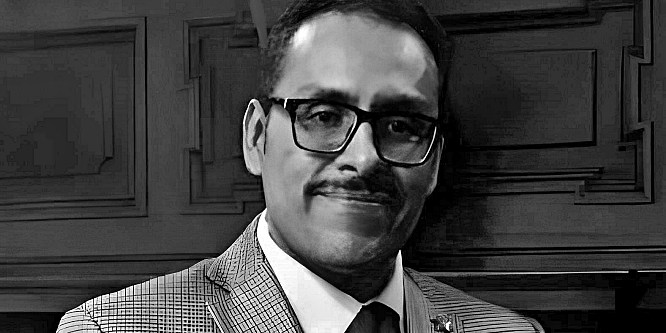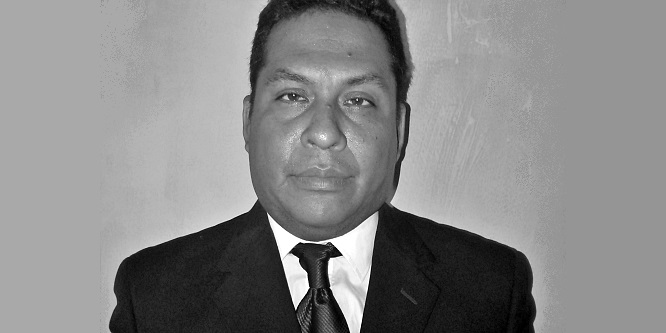 Drafted by Raimundo López Vives.
Drafted by Raimundo López Vives.
Abogado bajo jurisdicción chilena. Licenciado en Derecho de la Universidad de los Andes (summa cum laude). Ayudante de Derecho Internacional Privado Universidad de Los Andes. Miembro de la Asociación Chilena de Derecho Internacional Privado (ADIPRI). Abogado del grupo de Flota&Financiamiento de LATAM Airlines Group.
[divider]
I.) Introduction:
Over its six decades of existence, the International Court of Justice (hereinafter, the “World Court”, “ICJ” or simply the “Court”) needs to be amended to keep up with the new global realities that the world is witnessing. The pace of the changes in the international legal order, namely terrorism, global environmental harm, human rights violations[1], investment flows, artificial intelligence, among others, have greatly shifted the once narrower scope and nature of disputes and issues that the Court was created to resolve in the first place. Although the functioning of the Court is at an all-time high level[2], in the amount of cases being brought against it, the local effectiveness of the Court is not growing in line with the growing quantity and seriousness of the disputes that are submitted to its consideration and the image that the Court is portraying for itself before the international community.
Therefore, the only way to ensure that the intended binding nature of the World Court its actually binding in reality, it would be necessary to create some reform mechanisms. These should aim, most urgently and primarily to make revisions in the following three matters that will be succinctly addressed below: independent power from the United Nations´ Security Council (hereinafter, “the Council”) by way of modifying the United Nations´ Charter (hereinafter, “the Charter”), global enforcement of the ICJ´s awards by enhancing Secretary-General´s enforcement powers, and lastly, the modification of article 31 of the ICJ Statute (hereinafter, “the Statute”).
(i) Regarding full independent power from the Council of the United Nations:
According to the Article 94 of the Charter, the Council, acting as the executive branch of the ICJ, is the sole body with the power to execute the awards, judgments or resolutions issued by the World Court on the cases brought before it. Considering the much-questioned composition of the Council, where the 5 permanent members have veto power to completely paralyze or suspend the execution of ICJ´s judgments, much of the fate of said judgments is left over to politicians and temporal government officials representing those permanent members that lack the complete independence that these judgments should be complemented with at the execution phase.
Particularly, there´s a gross conflict with Article 60 of the Statute and Article 94 of the Charter. Article 60 of the Statute clearly declares that ICJ´s judgments are final and not appealable. Being of the opinion that the true judicial independence of the ICJ should be granted immunity from political scrutiny, the Council should have no power of decision over ICJ´s judgments[3]. This is especially needed in those cases where one of the permanent members of the Council is at the ICJ featuring as a State party or intervener involved in the dispute.
Once the Council is removed from the power of non-execution to the judgments of the ICJ, the World Court would truly be an independent power as required by mostly all relevant jurisdictions around the world, where local tribunals supposedly act bearing full judicial independence.
(ii) Regarding the global enforcement of the judgments ruled by the ICJ:
The ICJ is the only body under the Charter with jurisdictional powers over their Member States, said States should only act as parties to the procedure and not as indirect executioners as is currently happening today based on (i)[4]. Considering that Articles 98 and 99 of the Charter, in their current redactions, authorize the Secretary-General to ensure compliance of the judgments issued by the ICJ.
We believe this power is not truly taken into consideration today and this attribution of the Secretary-General should be greatly expanded at the same time the powers of the Council, regarding the execution of ICJ´s awards, need to be completely suppressed: “The role of the Secretary-General cannot be overlooked once it comes to the issue of the enforcement of judgments under International Law, which as it will be found out, will include judicial decisions of the cases handled by the Court.”[5]
By this essay, we submit the idea that the powers and faculties of the Secretary-General must be greatly enhanced, at least regarding the execution or enforcement of the ICJ´s decisions. Only by doing this, the rulings of the World Court would actually have a global impact as truly intended by the Charter and the spirit of International Law, both of which are the bases of itself creation of the ICJ.
(iii) Regarding the amendment or revision of Article 31 of ICJ´s Statute:
In its current redaction, the Statute that governs proceedings at the World Court, in its Article 31, actually permits the States parties to appoint one ad hoc judges based on the circumstance that no-national from a particular State party will be acting as judge of the Court in the hearing and ruling of the case. We strongly believe this option of the States is currently undermining the true independence of the Court, as States parties usually use and abuse of this prerogative and rarely waive their rights on this matter[6].
Considering this prerogative of States could be regarded by some as purely procedural, its effects are in no way immaterial to the essence of the disputes that are to be adjudicated by the Court. In essence, once a national judge of a State party is appointed, said judge will be heavily biased to rule in favor of its nationality State.
In light of the above, we submit that in order to enhance the impartiality of the ICJ in the international community´s eyes, this rule should be cut out or at least, diminished on its applicability by making it a last recourse of the State parties in circumstances that the case actually requires a national judge of said State, for proven better intelligence of the case brought before the Court, as initially required by the State parties with prior written consent of the President of the Court.
II.) Conclusion:
As briefly described above, we strongly believe that the Charter and the ICJ Statue needs to be amended in a sense that the primary judiciary organ of the United Nations should bear more enforcement powers and more credibility from the international community perspective.
These modifications should be specifically designed in order to ensure the global basis of execution of the ICJ´s judgments and the real independence of the Court in the hearing of the cases that are presented for its consideration and later adjudication.
By way of summary, we submit these reform topics will in turn guarantee due full impartiality when the Court actually rules the disputes presented before it for their settlement under International Law, without diminishing States´ sovereignty: States will continue to be able to give or revoke their consent, at any given moment, as actually happens today, before submission to the jurisdiction of the Court.
[1] Ogbodo, S. Gozie (2012) An Overview of the Challenges Facing the International Court of Justice in the 21st Century,» Annual Survey of International & Comparative Law: Vol. 18: Iss. 1, Article 7, p. 18.
[2] (2) Report of the International Court of Justice (1 August 2016-31 July 2017), United Nations´ General Assembly, Official Records, Seventy-second Session, Supplement No. 4, p. 8.
[3] Aman Mishra (2015), “Problems in Enforcing ICJ’s Decisions and the Security Council”, Global Journal of Human-Social Science: F Political Science, Global Journals Inc. (USA), Volume 15: Iss., 5, Version 1.0, p. 2.
[4] This would also be in line with basic procedural principles applied in almost all jurisdictions.
[5] Amuda-Kannike Abiodun SA & Abila, Sylvanus (2018), “A Critical Examination of the Enforcement of ICJ Decisions through the Organs of the United Nations”, Journal of Law and Criminal Justice, American Research Institute for Policy Development, Vol. 6, No. 1, p. 2.
[6] From 1922 to the end of August, 1967, for example, there is only one case where State parties did not use this option of appointment, namely, “Interpretation of the Greco-Turkish Agreement of December 1, 1926”, between Greece and Turkey, given on August 28, 1928, where both parties waived their rights. This waiver was made on the basis that neither Greece nor Turkey had national judges actually hearing this case.




